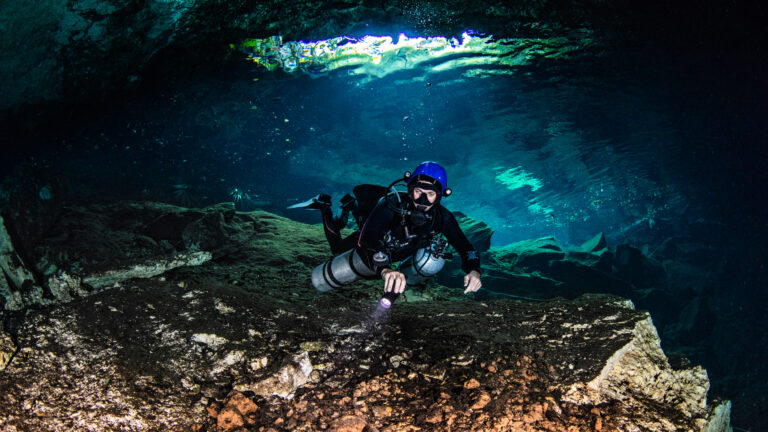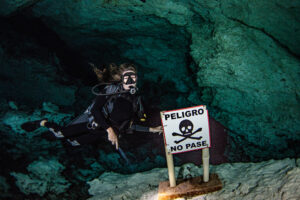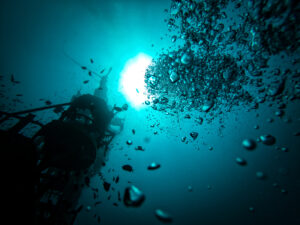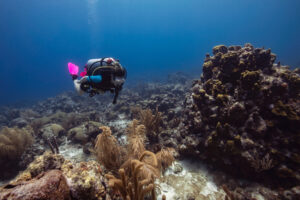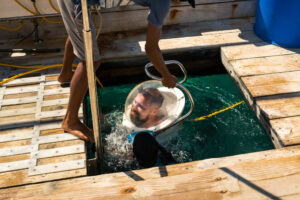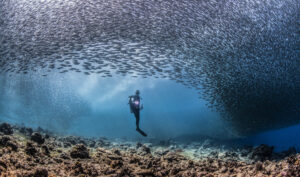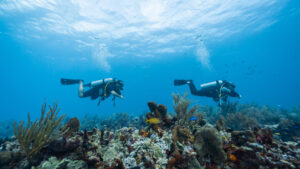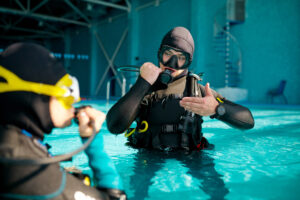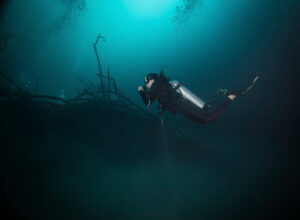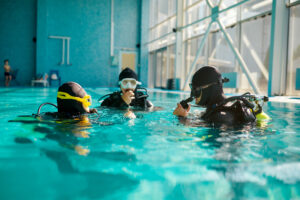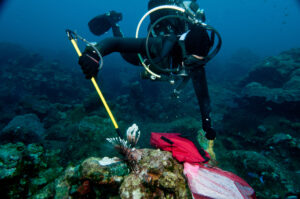What is a Boat Dive?
A boat dive is a type of scuba diving activity where divers travel by boat to reach a dive site. These sites are often located farther offshore, beyond the range of shore dives, and can encompass a diverse range of underwater environments, from coral reefs and shipwrecks to deep walls and pinnacles. Boat diving provides access to a wider variety of dive locations and offers a unique experience compared to shore diving. This entry will explore the different types of boat dives, factors to consider when planning a boat dive, and tips for a safe and enjoyable experience.
Types of Boat Dives
Day Trips
These are the most common type of boat dives, where divers embark on a vessel for a single day to explore one or more dive sites. Day trips often include two or three dives, with surface intervals spent on the boat. This type of dive is popular among vacationing divers and those looking to explore various sites in a short time.
Liveaboards
A liveaboard is a dive boat specifically designed to accommodate divers for multi-day excursions. These boats typically have sleeping quarters, dining areas, and ample space for dive gear storage. Liveaboards offer the opportunity to explore remote and pristine dive sites that are inaccessible by day boats. They often cater to advanced divers seeking unique experiences such as deep wrecks, pelagic encounters, or underwater photography.
Charter Boats
Charter boats are privately rented vessels, offering a more personalized and intimate diving experience. Divers can choose their dive sites and plan their own itineraries, making this option popular among groups or individuals with specific diving interests.
Planning a Boat Dive
Choosing a Dive Operator
When selecting a dive operator for your boat dive, consider factors such as safety record, reputation, and the quality of dive guides. Also, consider the size and amenities of the boat, as this can impact your comfort during the trip.
Dive Site Selection
Research dive sites beforehand to ensure they align with your skill level, interests, and preferences. Consult local dive guides or experienced divers to gather information about currents, visibility, marine life, and other site-specific factors.
Equipment
In addition to your standard scuba gear, boat diving requires additional equipment such as a surface marker buoy (SMB), which helps the boat locate you after a dive. Additionally, consider bringing a dive light, reef hook, or other accessories tailored to your chosen dive sites.
Certification and Insurance
Ensure your dive certification and insurance are up to date before embarking on a boat dive. Some operators may require specific certifications, such as an Advanced Open Water or Rescue Diver certification, for certain dive sites or trips.
Safety Tips
Pre-dive Briefing
Attend the pre-dive briefing provided by the dive operator. This is crucial for understanding dive site conditions, safety procedures, and the boat’s layout and facilities.
Buddy System
Dive with a buddy, and establish a clear plan for communication, navigation, and emergency procedures.
Stay Hydrated
Boat diving can be dehydrating due to exposure to sun, wind, and saltwater. Drink plenty of water throughout the day to prevent dehydration and the risk of decompression sickness.
Entry and Exit Techniques
Familiarize yourself with the boat’s entry and exit procedures, which can vary depending on the vessel and conditions. This may include giant stride, back roll, or seated entry and exit techniques.
Monitor Conditions
Be aware of changing weather and sea conditions, and be prepared to adjust your dive plan accordingly.
Environmental Considerations:
Marine Life Interaction
Observe marine life from a safe distance and avoid touching or disturbing the creatures and their habitats. Some marine animals, such as coral, are delicate and easily damaged, while others may react defensively if they feel threatened.
Buoyancy Control
Good buoyancy control is essential for minimizing contact with the underwater environment and preventing damage to delicate ecosystems. Practice buoyancy skills and maintain proper weighting to ensure a safe and environmentally responsible dive.
Anchoring and Mooring
If anchoring is necessary, ensure that the anchor is placed in a sandy area away from coral or other sensitive habitats. Better still, use established mooring lines if available, as they prevent damage caused by dragging anchors.
Leave No Trace
Collect all trash, including discarded fishing line or other debris, and take it back to the boat for proper disposal. Do not touch or remove any natural or historical artifacts from the dive site.
Support Sustainable Operators
Choose dive operators who follow environmentally friendly practices, such as using mooring buoys, promoting responsible interactions with marine life, and participating in conservation initiatives.
Advantages of Boat Diving
Access to Remote Sites
Boat diving allows divers to reach dive sites that would be inaccessible or difficult to access from shore. This enables exploration of a wider variety of underwater environments and encounters with unique marine life.
Convenience and Comfort
Boat dives often provide added amenities, such as restrooms, shade, and refreshments, making the experience more comfortable than shore diving. Additionally, boat dives eliminate the need to carry heavy gear across long distances or navigate challenging entry points.
Camaraderie and Networking
Boat dives offer the opportunity to meet and dive with like-minded individuals from around the world, fostering camaraderie and networking opportunities within the diving community.
Customized Experiences
Boat dives can be tailored to meet the specific interests and skill levels of individual divers or groups, making it possible to create a highly personalized diving experience.
Key Takeaways
Boat diving is an exciting and versatile way to explore the underwater world, offering access to a vast array of dive sites and experiences. By carefully planning and following safety guidelines, divers can enjoy unique underwater adventures while minimizing their impact on the environment. Whether embarking on a day trip or a liveaboard journey, boat diving opens up a world of possibilities for scuba enthusiasts, allowing them to discover the wonders of the ocean beyond the shoreline.

